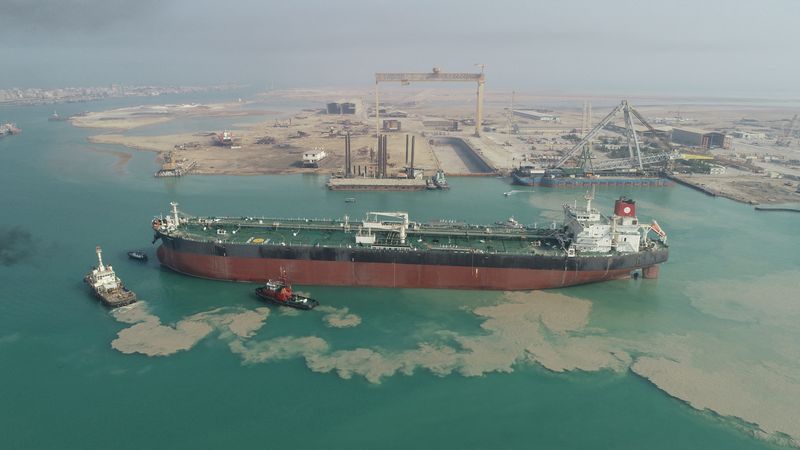By Mircely Guanipa
PUNTO FIJO (Reuters) - More than half of the 22 oil tankers in Venezuela's fleet are so run down that they should be immediately repaired or taken out of service, according to an internal report from state-run oil company PDVSA that was shared exclusively with Reuters.
The report by PDVSA's maritime branch, entitled "Critical deficiencies and risks of PDV Marina's tanker fleet," said years of deferred maintenance had left the entire fleet with "low levels of reliability," at risk of spills, sinking, fires, collisions or flooding.
"The ships currently lack seaworthiness classification and certifications by flag nations," the report said.
PDVSA and PDV Marina did not respond to requests for comment.
The report, dated March 2023, was among eight documents shared with Reuters describing the state of PDVSA's tanker fleet from the oil company's corporate office, trading division and maritime branch, as well as Venezuela's maritime authority. The existence of the documents has not been previously reported.
Dated from Jan. 2022 to March this year, the documents detail the condition of the company's tankers; the costs of chartering third-party vessels and the status of shipbuilding contracts with companies in Argentina and Iran.
The deterioration of the fleet has forced PDVSA to charter tankers to move its oil, which provides the bulk of Venezuela's hard currency, the analysis by PDVSA's trade division said.
PDVSA and the oil ministry did not respond to requests for comment.
The reports were prepared amid a wide-ranging anti-corruption probe ordered by Venezuela's President Nicolas Maduro last October after the discovery of billions of dollars in missing payments for petroleum exports. More than 60 people have been arrested and PDVSA's chief executive and the nation's oil minister have been replaced.
The report from PDV Marina recommended withdrawing five tankers from active use; sending seven to shipyards for major repairs and installing transponders, fire extinguishers and communication equipment in others. No actions have been taken as the audit on the company's operations continues.
Five of PDVSA's tankers are at least 30 years old, past their recommended lifespan, according to the PDV Marina report. The last major maintenance work on the fleet was five years ago, the report said.
"The tanker fleet is showing a decline in the quality of its operations due to advanced physical deterioration, which implies higher maintenance and repair costs. Planning for sending the tankers to dry docks has been very affected by lack of payment to shipyards and providers," the PDV Marina report said.
Reuters has previously reported on an increase in tanker collisions, spill risks and fires in Venezuela.
PDVSA leased 41 vessels last year, the documents said, paying about double the market rate, between $14,000 and $36,500 per day, to tanker owners willing to work with Venezuela despite U.S. sanctions imposed in 2019.
DELAYED SHIPS
At least four tankers ordered from foreign shipyards have been held up because of payment delays, cost increases and sanctions, according to the documents reviewed by Reuters.
The audits ordered by PDVSA's new CEO Pedro Tellechea as part of Maduro's anti-corruption probe could bring further delays, a PDVSA executive said.
"All contracts are frozen," the executive said on condition of anonymity due to fear of retaliation. PDVSA's legal and supply and trade departments are asking PDV Marina for documentation on the contracts, he added.
Venezuela has paid shipyards in Iran and Argentina at least $300 million for six new vessels ordered as far back as 2005.
It has taken delivery of only two of them, according to the documents.
PDVSA has paid almost 80% of the $160 million due for two tankers from Rio Santiago shipyard in Argentina, the documents showed.
Rio Santiago said it was not authorized to give information about that particular contract.
In addition, PDVSA paid almost 157 million euros (about $173 million), or 63% of a 248 million euros contract (about $272 million) to U.S.-sanctioned Iran Marine Industrial Company (Sadra) for four tankers, according to the documents.
Two of the four vessels were delivered after payment delays, difficulties with parts supplies and problems with insurance and certifications, according to the documents.

The payment delays generated extra costs for demurrage, the documents said.
Sadra did not reply to a request for comment.